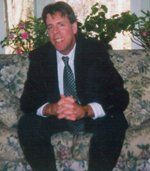My initial desire to become a piano technician in the year 1975 came from my musical background. I thought then that learning piano tuning would enhance my ability to write music. Unfortunately, it didn't do that, but it did open up an understanding and a curiosity to learn more about how pianos work.
I first apprenticed with the late Walt Sierota in 1976. He was then the president of the Philadelphia Chapter of the Piano Technicians Guild. He was also the exclusive piano technician for "Electric Factory Concerts" in the Philadelphia area. Most of his work was performed at the Tower Theater, the Spectrum Theater, etc., for many professional artists, including Frank Sinatra, Chick Corea, and Bruce Springsteen.

